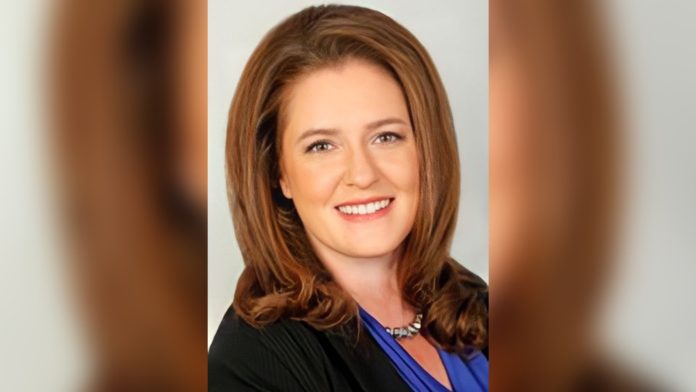Arizona House Member-Elect Liz Harris is well-known throughout Arizona and the United States after her bold and unprecedented move during the aftermath of the 2020 election: canvass the people who (allegedly) voted.
Harris and her team of everyday citizens spent almost two years canvassing Maricopa county and updating their findings as they went. Originally, there were rumblings that a canvass would be included in the 2021 Maricopa County Audit that was ordered by the state senate. Harris’s team would have been the likely executors of such a canvass, however, under mounting pressure from the DOJ, the canvass was put on hold indefinitely by senate president, Karen Fann. Perhaps it should have been conducted.
Among other key components of an “audit” that were missing was any ability to question or investigate Runbeck, the Phoenix based printer of the county’s ballots who also was contracted for the storage and scanning of returned mail-in ballots.
Auditors were also denied any substantive access to the splunk logs and routers that could have shown undue accessing of election infrastructure. They were also not given deleted “archived” files that were deleted “archived” just before the audit took place. In fact, it wasn’t until the testimony before the US Congress that it was discovered these files were “archived” prior to the audit and therefore not handed over. Try to delete files before an ordered audit and let us know what happens when the IRS or auditing agencies catches you doing that.
TRENDING: Arizona House Member-Elect Casts Aside Her Own Race For Election Truth
Arizonans are facing the same situation here in 2022 and Liz Harris, who is now an incoming member of the Arizona House, is being vociferous about what she believes to be true based on hard evidence from her canvass results:
We need to check the signatures.
What judge will stand up to and accept her challenge? Last week, evidence was offered to a Maricopa court showing that chain of custody was significantly violated in the mail in ballots that were picked up on election day. Over 260,000 of them.
Signatures would prove that the chain of custody violations were exploited, but signature examination was not permitted by Judge Peter Thompson despite the chain of custody being broken.
While election integrity activists finally got a day in court, the case itself was throttled down from ten counts to just two with a very limited window of discovery, only five and a half hours to argue the case, and an almost impossible burden of proof: not only did they have to prove the election outcomes would have been different with a precise number of impacted votes, they had to prove it was done with malicious intent and, strangely, who exactly it was that caused it. Was that a criminal trial or a civil lawsuit?
Background on Liz Harris and her 2020 efforts:
After the highly controversial 2020 election that, among numerous other issues, was disproportionately funded by Zuckerbucks in key Democrat strongholds, Liz Harris, who had at the time just lost in the Arizona GOP primary for a US House seat, took a step towards confirming or refuting the general election results from Nov. 3, 2020.
Liz Harris and a group of patriots took to the streets of Arizona with a map in hand, a questionnaire, and a plan for reporting and documenting what they found.
The questions were simple:
- Did you vote in the 2020 election and, if so, by what method did you vote?
- Did you receive any extra ballots and what did you do with those ballots?
- Do these people live here? (referring to other registered voters on the voter rolls)
The results were shocking. Just a couple highlights from the incredible report:
- 34% (edited) of homes canvassed were found to have at least one registered voter that did not live at the address associated with the Maricopa County Record voter rolls. To date, over 1500 sworn affidavits have been signed.
- The 1/11/21 Maricopa County Recorder voter rolls show 2,034 records registered to a single address. 144 of them voted in the 2020 general election. 56% of them voted absentee. A total of 356 of them were sent ballots
Liz Harris’s initiative in grassroots activism to canvass neighborhoods was adopted by many other organizations across the country. And unsurprisingly, they found similar results. USEIP in Colorado and AuditTheVotePA in Pennsylvania, among others from Michigan, Wisconsin, Florida, Nevada, New Mexico and beyond aslo found similar anomalies when they canvassed their neighborhoods en mass.





